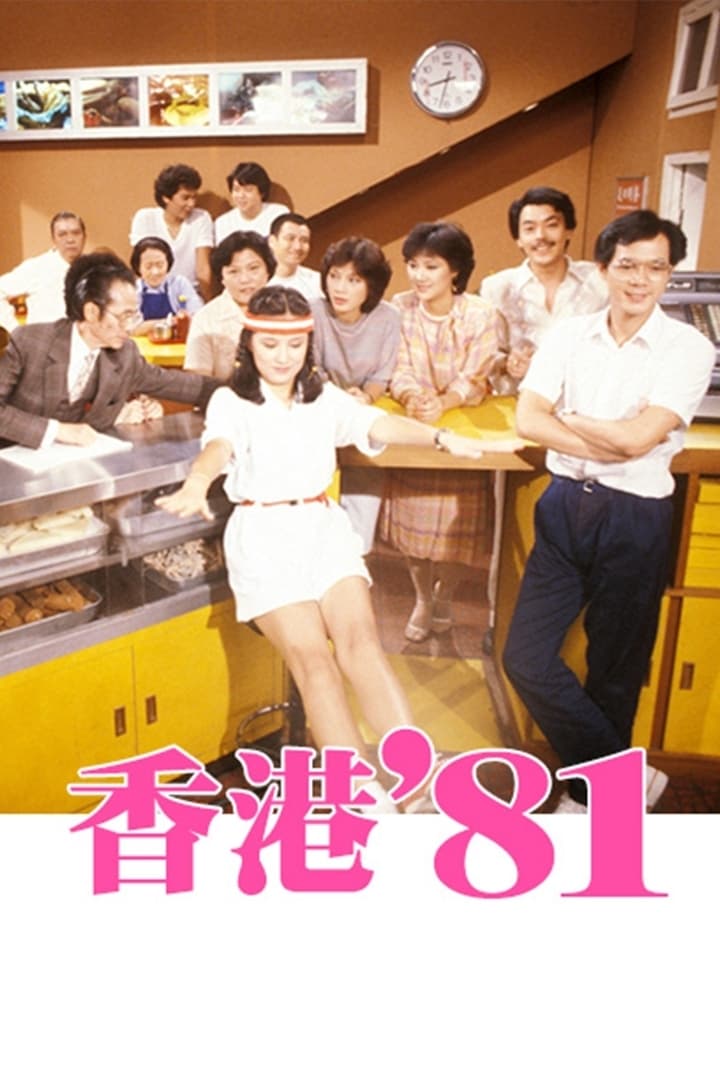HK 80's (1981 – 1986)
HK 80's
Backdrop for HK 80's.
Used for reference and discovery. All rights belong to their respective owners.
Complete episodes, seasons, and air dates for HK 80's (1981 – 1986)
|
|
HK 80's (1981 – 1986)
HK 80's has established itself as a landmark series in contemporary television, redefining what modern storytelling can achieve. Through intricate plotting, layered character development, and innovative narrative structures, the show has captured both popular and critical attention, becoming a cultural touchstone for audiences worldwide. From the very first episode, it challenges viewers with thought-provoking scenarios, moral dilemmas, and emotionally resonant storytelling. Far beyond simple entertainment, HK 80's offers a profound exploration of human experiences, relationships, and the complexities of personal growth, leaving lasting impressions long after the credits roll.
The series consistently intertwines themes such as identity, loyalty, justice, loss, and resilience. Every season builds upon the previous one, introducing new conflicts, evolving character arcs, and fresh narrative threads, creating a dynamic story world that is both engaging and immersive. Characters navigate challenges that are emotionally, ethically, and socially complex, inviting audiences to reflect on their own beliefs and values. Pivotal moments blend quiet introspection with dramatic tension, while plot twists and cliffhangers maintain suspense, ensuring that the stakes remain high and the viewer experience is continually compelling.
From a visual perspective, HK 80's excels in cinematic storytelling. Every shot is thoughtfully composed, using lighting, color, and framing to communicate mood, character states, and thematic undertones. Production design brings each environment to life, whether depicting intimate domestic spaces or expansive, bustling urban landscapes. The musical score supports and elevates emotional moments without overwhelming the narrative, while direction makes use of silence, negative space, and pacing to emphasize key beats. Together, these elements create a rich, immersive atmosphere that draws the viewer deeply into the story world.
Characterization is where HK 80's truly distinguishes itself. The ensemble cast delivers nuanced performances, with lead characters exhibiting moral complexity, emotional honesty, and evolving motivations. Supporting characters are fully realized and play essential roles in driving the narrative forward, often providing pivotal moments of insight, tension, or relief. Relationships develop organically, reflecting realistic dynamics rather than plot-driven contrivances. This attention to character depth ensures that each emotional payoff feels earned, and the audience remains invested in the outcomes of both central and peripheral arcs. Dialogue is carefully crafted, conveying information, emotion, and thematic resonance simultaneously, making even seemingly ordinary conversations carry weight.
HK 80's combines clever humor and relatable moments, offering laughter while subtly exploring human relationships and everyday experiences.
HK 80's delves into complex emotional journeys, exploring human relationships and societal challenges with depth and nuance.
For both longtime fans and new viewers, this narrative archive serves as a comprehensive companion to the world of HK 80's. It provides episode summaries, thematic analysis, and insights into character development, offering a deeper understanding of the series’ scope and impact. Beyond mere entertainment, HK 80's stands as a significant cultural work, one that encourages reflection, sparks discussion, and engages viewers on multiple intellectual and emotional levels. In an era dominated by fleeting content, it remains a memorable and influential example of storytelling craft, inviting audiences to explore, appreciate, and immerse themselves fully in its narrative universe.
| Title | HK 80's | |
|---|---|---|
| Genre | Comedy, Drama, Family | |
| First Air Date | 1981-06-08 | |
| Last Air Date | 1986-07-03 | |
| Seasons | 6 | |
| Episodes | 1310 | |
| Runtime | min | |
| Overview | This sitcom series premiered in 1981 and changed its name every year, from "Hong Kong 81" to "Hong Kong 86." It was eventually replaced by a new sitcom called "City Stories." A total of 1330 episodes were produced, making it the second-longest-running series in Hong Kong, after "Come Home Love: Lo and Behold". Each episode of this series is inspired by current social issues, with early storylines often satirizing society's flaws. The characters, such as "Chen Ji," "Mrs. Shun," "Uncle Mao," "Jue Wu Yin," "Miss Su," "A Wei," and "Ah Kang," mostly hail from the grassroots, leaving a lasting impression on the audience. For example, "Mrs. Shun," portrayed by Lydia Shum, later became a term to describe uneducated women who follow trends blindly. "Chen Ji," played by Lawrence Ng, is a stockbroker who loves to show off his wealth, and his behavior typified that of many Hong Kongers, becoming a byword for the city's nouveau riche. |
|
| Stars |
|
|








